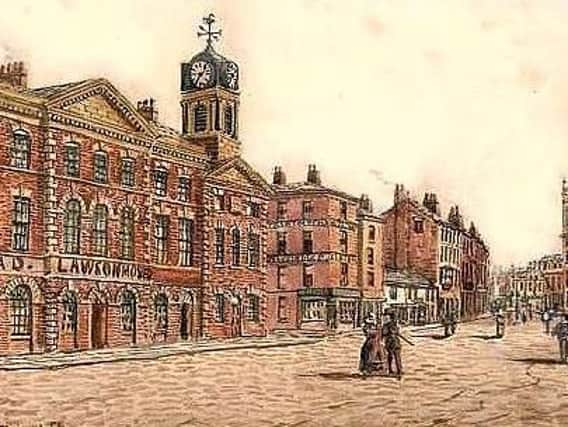Preston traders get hard labour for handling stolen goods


When Jane Jackson was arrested in mid-August 1857 and charged with robbing Abraham Kingsley, a shoemaker, of two £5 notes, three sovereigns and some silver coins it seemed a straight forward case, but as things developed it was not.
Jackson appeared at the Preston Police Court before the magistrates and the hearing heard Kingsley, who was in liquor at the time, had met her in Church Street and accompanied the accused to a house in Carlisle Street, kept by Alice Neeve a known brothel keeper.
Advertisement
Hide AdAdvertisement
Hide AdAfter the couple had been there a short while they headed off down Pole Street, where the woman ran away and left him. He then discovered that he had been robbed of all his money, and returned to Neeve’s house, to ask where Jane Jackson lived, but could not get to know.
He then gave information of the robbery to P.C. Steenson who was on patrol in Church Street. From Kingsley’s description of the woman P.C. Steenson suspected it was Jackson and he took Kingsley to a house in Library Street where they found her and he identified her, although she had changed her dress in the meantime.
She was taken to the police station and admitted being with Kingsley, although no money was found on her. Alice Neeve testified that as the pair left her house she had asked Kingsley if he was alright and he showed her the money he had and put it back in his trouser pocket. The magistrates after lengthy deliberations sent the accused for trial at the next Preston Sessions.
When the trial took place Jackson pleaded guilty and was sentenced to six months imprisonment, and made certain disclosures relative to the missing money. She testified that she had given the two missing £5 bank notes to John Edward Harris, a hairdresser of Molyneux Square, and Issac Beesley, a hat manufacturer of Walker Street, who had promised to exchange them for a price.
Advertisement
Hide AdAdvertisement
Hide AdIn early December 1857 both men stood on trial accused of receiving stolen property. Jane Jackson testified that she had known Harris a couple of months and he had told her he could dispose of stolen goods.
She claimed that she had taken the bank notes to Harris shortly before she was arrested and that while on bail, awaiting trial, she had conversed with Harris. The accused wanted to give her only half the face value of the bank notes.
According to Jackson a boy delivered the money back to her and she then went to Beesley’s house where he promised to give her £6 for the two bank notes.
Alice Ann Brown, who dwelt in the same house as Jackson, told the court she was aware of the wrangling over the bank notes and stated that Harris had tried to get her to leave town until the trial was over.
Advertisement
Hide AdAdvertisement
Hide AdThe chairman Mr. Thomas Batty Addison summed up in a careful manner, and then went to great lengths to point out the serious nature of the charges. Commenting that such offences make it easier for thieves who know they have an outlet for their ill gotten gains.
The jury retired for only a short time before returning a guilty verdict against both prisoners. The chairmen then remarked that it was essential that those who rendered assistance to persons committing robberies should be punished and informed the prisoners they would go to prison for 12 months with hard labour.